By Amy Galliford
It’s a Friday night, and laughter is ringing through the rooms of an ordinary Sydney house. A group is gathered around a table, bantering across platefuls of ramen or pizza. At a glance, you might wonder what this group has in common, but as evening falls and conversation deepens, it is not long before you encounter the source of their stubborn loyalty.
To be saved is to be welcomed into the family of Christ; this is the belief on which Sydney Crystal Church centres its mission. Especially within a society of chronic loneliness and crippling divisions, they see the radical inclusion of the other into family as the core of the gospel.
Senior Pastor, Martin Song explains, “Jesus clashed with the Pharisees because he ate with sinners. But when he invited prostitutes and tax collectors to a meal together, he was inviting them into the family of the Kingdom of God. The concept of the saved was described by Jesus as those who will eat and drink with me as family in heaven. In Ephesians 2 it shows that the church community does not just become like a family, but it becomes a family.”
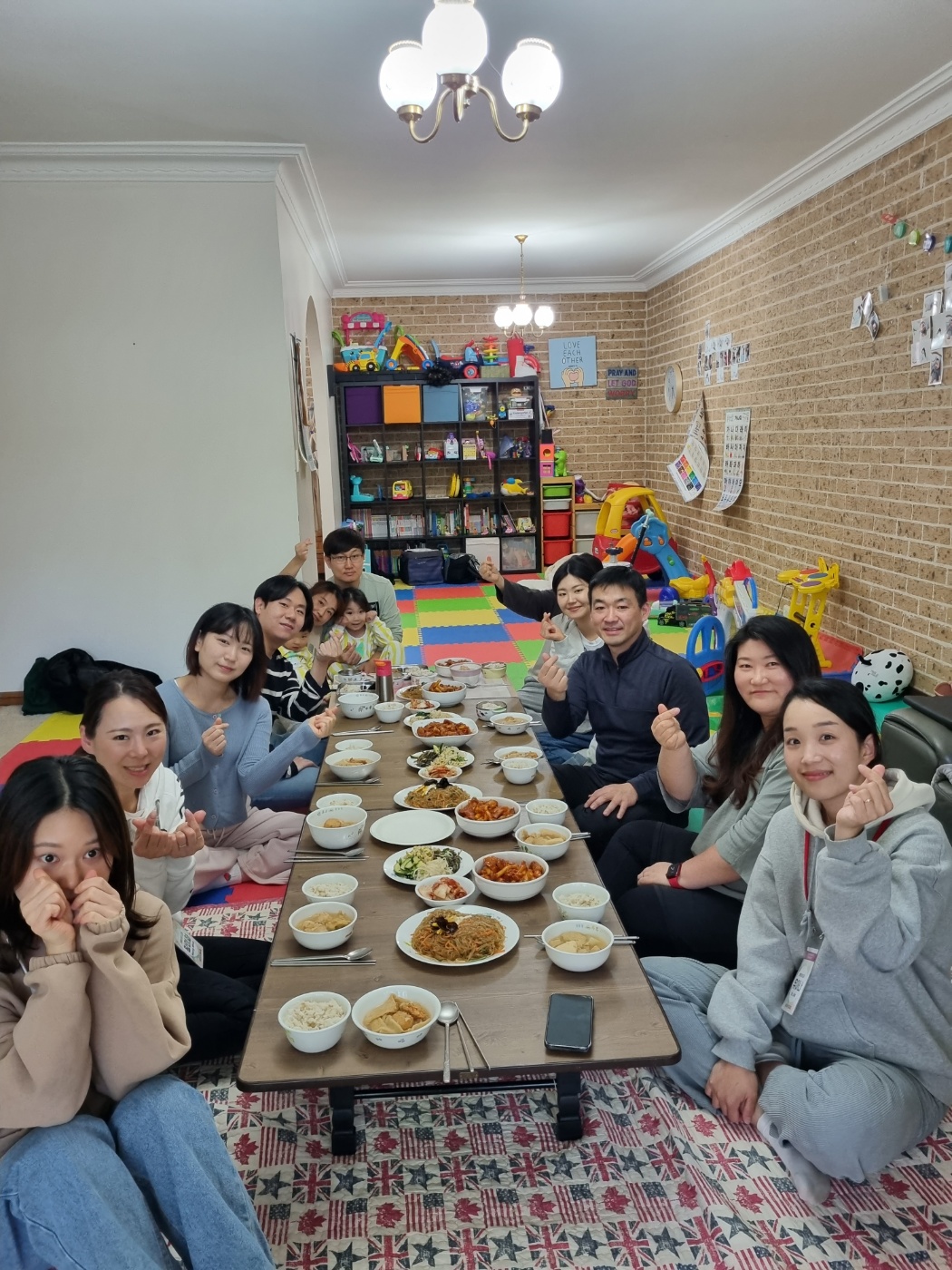
Sydney Crystal practises what it preaches. Across Sydney, over 40 groups and nine youth groups gather weekly for house church, where they share, listen and pray for each other in their faith journeys. These house churches are the first touchpoint for newcomers and non-believers, committed to serving and embracing them unconditionally and explicitly referring to them as ‘VIPs’.
Sophia Lee, a Sydney Crystal house church ‘shepherd’, explains,
“The whole concept is to reach out and gather with non-believers so that they can see our faith in action.”
It is within the walls of such a home that a disciple is born. Martin points out that while much of the Western church has perfected the music and sermons of a Sunday morning, those who have prioritised relational community are the ones who are truly growing disciples.
“It’s hard to evangelise to people these days. The gospel is preached logically and theoretically, but this generation has to see the Christian life. Jesus showed us sacrificial love and service. To save one lost soul, sacrificial service is necessary. We become their friends, we invite them to our house church and eat together. And then, they are naturally able to hear the gospel.”
Sophia echoes Martin’s comments, emphasising the selflessness required by this model of church. She says, “We tend to think it’s about our blessing – ‘It’s my relationship with God and I want to be blessed.’ But God’s heart is for the lost; He wants them saved. If our ministry can contribute to what God wants, then that is what we are here for.”
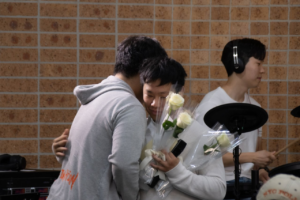
Two Sydney Crystal members at a ‘Hug Ceremony’, where a recently baptised believer is given the opportunity to honour their house church.
For those viewing Sydney Crystal’s practices through a Western cultural lens, it may feel difficult to look past the cost and inconvenience of the commitment required or the discomfort of vulnerability with friends and strangers. And yet, for those at Sydney Crystal, that is precisely the point.
Martin explains, “Australian culture distinguishes between family and church and places great importance on one’s privacy. However, in the Bible, Christians were a spiritual family who sacrificed and shared their belongings with each other. They lived a martyr’s life. Martyrdom does not just mean being killed. They sacrificed their own lives – their time, money, and family.”

Outworking such a call puts character to the test, demanding dependence on divine love. The members of Sydney Crystal are acutely aware of this as they encounter the mess that comes with a community that genuinely sees itself as family. Reflecting on the 30 years she spent attending Sunday services, Shepherd’s Wife Rebecca Lee says, “I only got to know people superficially. You don’t get to see their ugly sides and if you do, you can just avoid them.”
Her early engagement with house church could not have provided a starker contrast. She recalls, “God deliberately put people in my house church I would never normally hang out with, and so I really had to learn to seek God’s help to love them. It’s really taught me to love others who are very different to me. That’s what a family is like.
“It’s about radical acceptance and loyalty. We get to share the joy of answered prayers as well as share our disappointments. It’s not just about nice, pleasant stuff – sometimes you have to bring up issues and say hard things. Everyone has blind spots they are not aware of unless there is community.”
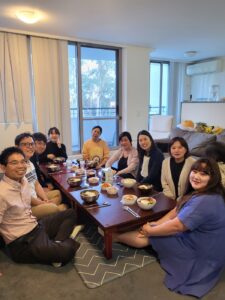
This radical acceptance is what Martin sees as the defining feature of Christians. He explains, “From the names Paul greets in Romans 16, we know that Christians formed families with slaves, nobles, royalty, Jews and Gentiles. From a historical perspective, this is revolutionary. They invited people into their homes, regardless of ethnicity, race, or status, and became a family. The first church in Antioch preached the gospel to Greek Gentiles, and this is where they were first called ‘Christians’,” he says.
Written into the origin story of Christianity is a love that transcends social divisions and personal preferences, instead forming families out of the stranger, outcast and other. For members of Sydney Crystal, being formed in this love has required their own transformation.
With striking vulnerability, Rebecca states,
“My love was way smaller than I realised – I only wanted to serve and be in community with people who are like me. I was a kind of Pharisee. This ministry made me realise the limits of my love – now I better understand what Jesus says. I have so much more compassion for people.”
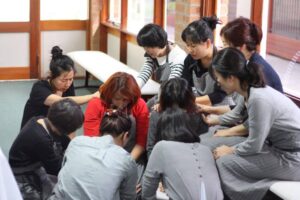
Just as a child is born into family and grows within it, the new believer is reborn and trained within community. Martin is passionate about this life cycle of discipleship. He reflects,
“Churches must have a process in which life is born, grows, and then those who have grown give birth to life. But many churches are not giving birth – this is why they are aging.”
Sydney Crystal is intentional about these processes. When VIPs begin expressing their interest in faith, they are invited to attend church and then eventually to a ‘Receiving Jesus’ meeting where Pastor Martin or Pastor Samuel presents the gospel – most accept Christ at these meetings. From there, they are baptised and are led to engage in ‘Living Life’, a 13-week Bible study course that explores the fundamentals of a life of faith.
There are processes in place for the ‘horizontal’ transfer of faith from believers to non-believers and for the ‘vertical’ transfer from generation to generation.
Samuel Choi, pastor of Sydney Crystal’s Youth and the church’s ‘All Nations’ English service, oversees seven youth house churches. To him, an intergenerational community is essential in enabling the vertical transfer of faith, as young people are trained in the love and servanthood of a disciple by observing the lives of elders. He states simply, “God made a family. To grow in family means we learn from others as role models.”
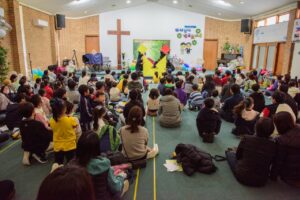
He has seen this dynamic at play in the children’s and youth house churches.
“We didn’t think house churches would work so well with youth, but younger kids started looking to older kids as role models. These kids are teenagers – they are often going through things they can’t share at home. They find healing and help from each other in sharing and find answers to their ‘growing-up’ problems. We know it is working when we hear testimonies from the families that their kids are changing.”

During the house church gatherings, the adults carve out time to pray over and bless the children – they call this time an ‘olive blessing’. Martin explains, “The olive tree is a symbol of blessing. It is difficult to bear fruit once, but once it begins to bear fruit, it continues to bear fruit for over 500 years.”
It is not difficult to anticipate the legacy of this community. Rooted in family love and loyalty, their branches stretch wide and high and bear lasting fruit, as strangers and non-believers flourish into friends, families and disciples.
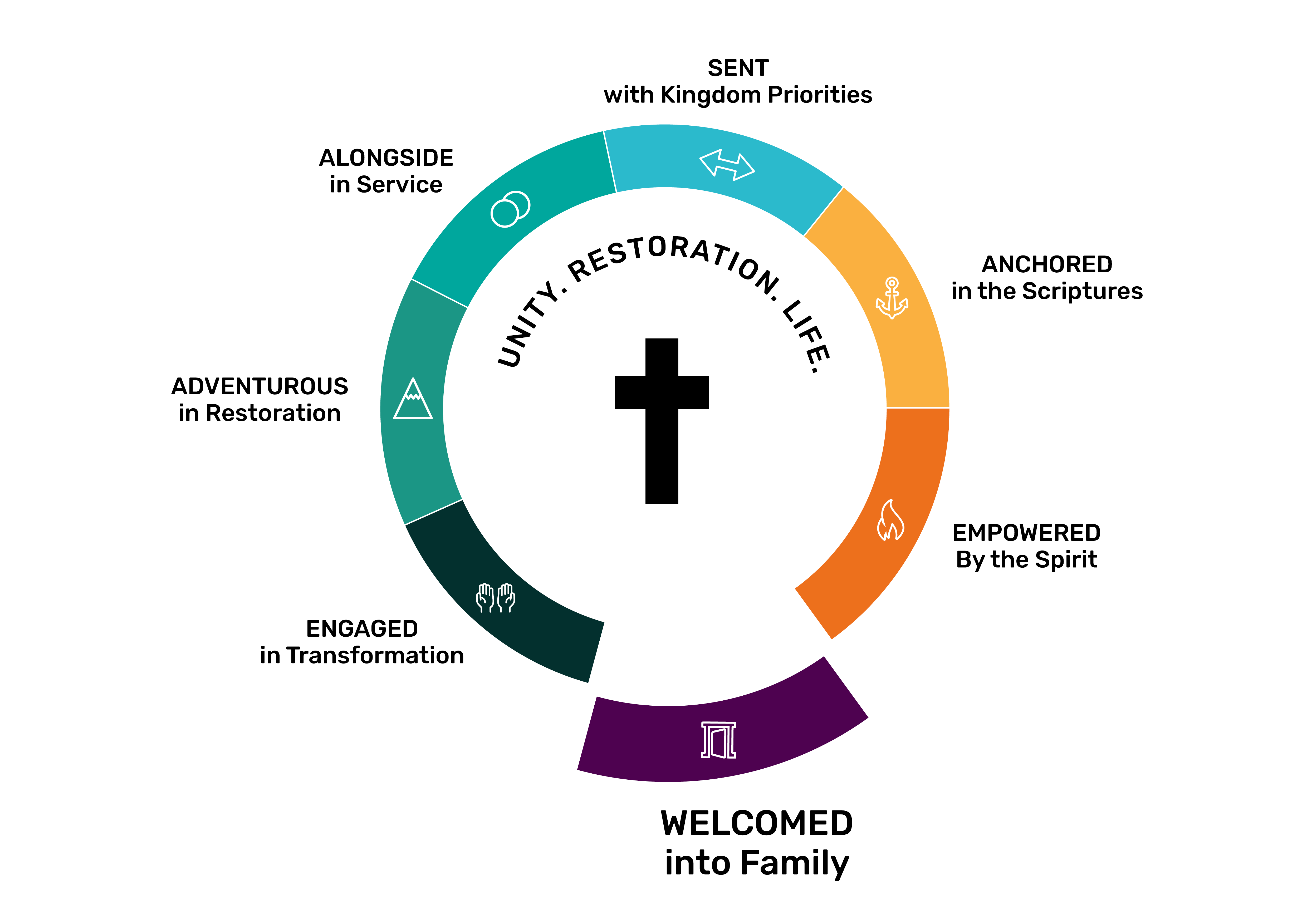
This story is an example of one of the seven facets of the ethos of our network of churches: Welcomed into Family. Sydney Crystal Church, while only one example among many in our network, reminds us that God’s Spirit is drawing His people to champion this value for His Church today.
To learn more about the churches of Christ in NSW & ACT ethos, check out our Who We Are resources.
Read more stories from churches of Christ in NSW & ACT HERE